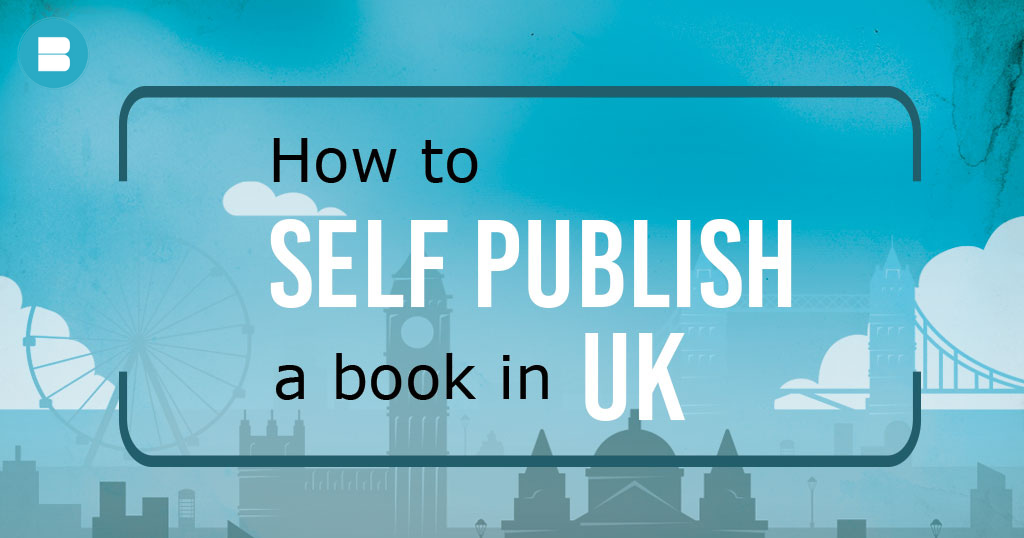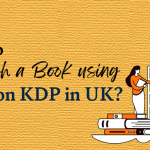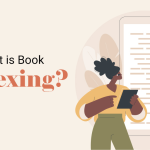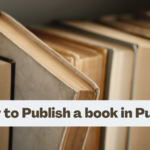Are you a first-time author in the UK with dreams of seeing your book in print? Self-publishing can be an excellent option to bring your literary aspirations to life. This guide will take you through the process of self-publishing a book in the UK, providing valuable insights and tips along the way. From finding the right publishers to navigating the writing and publishing journey, let’s explore how you can make your mark in the vibrant world of British independent publishing.
I. Understanding Self-Publishing:
Self-publishing is the process by which an author takes on the responsibility of self publishing their book independently, without relying on traditional publishing houses or agents. In self-publishing, the author assumes control over various aspects of the publishing process, including editing, cover design, formatting, printing, distribution, and marketing.
Unlike traditional publishing, where authors submit their manuscripts to publishing houses and rely on their expertise and resources, self-publishing empowers authors to retain creative control and ownership over their work. It offers authors the opportunity to bring their books to market on their terms, often with faster turnaround times and greater flexibility.
Self-publishing can be done through various platforms and services that specialize in supporting independent authors. These platforms provide tools and resources to assist authors with formatting, cover design, eBook conversion, and distribution. Print-on-demand services allow authors to have physical copies of their books printed as orders come in, eliminating the need for large print runs and upfront inventory.
Authors who choose to self-publish their own book are also responsible for marketing their books. This includes building an online presence, utilizing social media platforms, organizing book launch events, seeking book reviews, and implementing promotional campaigns. Self-published authors have the opportunity to connect directly with their readers, build a loyal fan base, and retain a higher percentage of royalties from book sales.
Self-publishing offers a viable alternative for authors who may face challenges in securing traditional publishing deals or prefer to have complete control over their publishing journey. It allows authors to bring their stories to life, reach readers, and potentially achieve commercial success while maintaining creative freedom and ownership over their intellectual property.
II. Finding the Right Publisher:
Researching Best Book Publishing Companies in UK:
When exploring independent publishers for your book in the UK for your book, it is beneficial to focus on those that specialize in your specific genre. These Book publishers often have a deeper understanding of the genre’s nuances and target audience, increasing the likelihood of a good fit between your book and their publishing vision.
Specialized Book publishers in UK are more likely to have an established network and connections within your genre, which can help with marketing and promotion efforts. They may have experience working with famous authors in similar genres and be well-versed in the specific challenges and trends within that literary space.
Additionally, it is essential to consider book publishers who have experience working with first-time authors. Publishing your first book can be a daunting process, and working with a publisher who understands and supports debut authors can be immensely beneficial. These publishers are often more open to reviewing unsolicited manuscripts and may offer more guidance and support throughout the publishing journey.
Publishers experienced in working with first-time authors are likely to have well-established processes and resources to assist with editing, cover design, formatting, and marketing. They may provide editorial feedback, help with manuscript revisions, and offer advice on navigating the publishing industry.
To find independent publishers that specialize in your genre and have experience with first-time authors, research online directories, industry publications, and literary associations. Look for publishers who have published books similar to yours and check their submission guidelines to ensure your manuscript aligns with their interests.
Consider reaching out to authors within your genre or writing communities to gather recommendations and insights. Attend writing conferences, workshops, or book fairs to connect with publishers, agents, and fellow authors who can provide valuable information and recommendations.
Evaluating Publisher Criteria:
When considering publishing a manuscript, several factors come into play. These include reputation, submission guidelines, royalty rates, contract terms, and distribution channels. However, one crucial aspect to consider is whether the publishing company accepts unsolicited manuscripts or requires representation by a literary agent.
Publishing companies with a reputation for accepting unsolicited manuscripts welcome submissions directly from authors without the need for an agent. This can be advantageous for aspiring writers seeking to bypass the agent query process, as it offers a direct avenue to showcase their work. On the other hand, some publishing companies exclusively work with literary agents. These agents act as intermediaries between authors and publishers, providing professional representation, negotiating contracts, and promoting authors’ works. If a publishing company requires representation, authors will need to secure an agent to submit their manuscript on their behalf.
Submission guidelines are another important consideration. Each publishing company has specific requirements regarding manuscript format, length, genre, and submission process. It is crucial to follow these guidelines meticulously to ensure that your submission is considered.
Royalty rates and contract terms vary across publishing companies. Authors should carefully review these aspects to understand the financial and legal implications of a potential publishing agreement. This includes understanding the advance payment, royalty percentages, rights granted, and contract duration.
Lastly, distribution channels are vital for ensuring that your book reaches its intended audience. Publishing companies may have different distribution networks, including physical bookstores, online retailers, and e-book platforms. It is important to assess the reach and accessibility of these distribution channels when selecting a publishing company.
III. Writing and Editing:
Crafting Your Book:
Developing a compelling storyline, memorable characters, and engaging dialogue is crucial to creating a captivating bluer piece of writing. A compelling storyline is driven by conflict, tension, and a clear narrative arc that keeps readers hooked from beginning to end. It should present challenges and obstacles that the characters must overcome, creating anticipation and emotional investment.
Memorable characters are essential for readers to connect with the story. They should have distinct personalities, motivations, and flaws that make them relatable and multi-dimensional. Developing their backstories, desires, and conflicts can add depth and complexity to their characterization.
Engaging dialogue brings the characters to life and drives the narrative forward. Dialogue should be natural, revealing information about the characters, their relationships, and advancing the plot. It should be purposeful, reflecting the characters’ unique voices, and avoiding excessive exposition.
To maintain consistency in writing, establishing a routine is vital. Determine a regular writing schedule that works for you and stick to it. Setting achievable goals, such as a specific word count or dedicated writing time, helps to maintain discipline and progress. Breaking larger tasks into smaller, manageable ones can make the writing process less overwhelming.
Additionally, seek feedback from trusted beta readers or writing groups to gain different perspectives and identify areas for improvement. Revising and editing are crucial steps to refine the storyline, characters, and dialogue.
Professional Editing:
Hiring a qualified editor is a crucial step in the writing process to ensure that your manuscript is polished and refined. An editor can provide valuable feedback and expertise to improve the grammar, structure, and style of your work. They can identify and correct errors in spelling, punctuation, and grammar, ensuring that your writing is clear and professional. Moreover, an editor can offer suggestions to enhance the overall structure and organization of your manuscript, ensuring a smooth flow of ideas and coherent storytelling. They can also help refine your writing style, making it more engaging and consistent throughout the manuscript.
In addition to hiring an editor, seeking peer feedback and utilizing beta readers can provide valuable insights. Peers and beta readers can offer fresh perspectives on your work, highlighting areas that may require improvement, such as character development, plot holes, or pacing issues. Their feedback can help identify strengths and weaknesses in your writing, enabling you to make necessary revisions and enhancements.
It is important to approach peer feedback and beta reader comments with an open mind, as they provide different perspectives and insights that can ultimately strengthen your manuscript. Consider their suggestions and criticisms thoughtfully, but also trust your own judgment as the author.
By combining the expertise of a qualified editor with the input from trusted peers and beta readers, you can refine your manuscript to its fullest potential. This collaborative approach ensures that your work is thoroughly reviewed, polished, and ready to captivate readers.
IV. Cover Design and Formatting:
Eye-catching Book Cover:
Designing a visually appealing book cover is essential for capturing readers’ attention and accurately representing the genre and tone of your book. A well-designed cover can make a significant impact on attracting potential readers and setting the right expectations for your story.
One option is to engage a professional graphic designer who specializes in book cover design. A professional designer can bring expertise, creativity, and industry knowledge to create a cover that aligns with your vision. They can work closely with you to understand the essence of your book and create a custom design that effectively communicates its genre, themes, and mood. Hiring a professional ensures a polished and unique cover that stands out from the competition.
Alternatively, if you have design skills or prefer a more hands-on approach, you can explore design tools and templates available online. These tools often offer pre-designed templates specifically tailored for book covers, allowing you to customize elements such as typography, imagery, and color schemes. However, it is important to select high-quality templates and ensure that the final design reflects the professionalism and uniqueness that your book deserves.
Regardless of the approach you choose, it is essential to consider genre conventions and trends when designing your cover. Research successful book covers within your genre to understand the visual language and elements that resonate with readers. A visually appealing cover that aligns with genre expectations will help attract the right audience and generate interest in your book.
Remember, the cover is the first impression readers have of your book, so investing time and effort into creating a visually appealing and genre-appropriate design is a worthwhile endeavor.

Formatting Your Book:
Formatting your manuscript for print and eBook versions is crucial to ensure a professional and visually pleasing reading experience. Adhering to industry standards helps your book appear polished and enhances its accessibility across different platforms.
When formatting for print, consider selecting a legible font for the main text that is easy on the eyes. Times New Roman, Garamond, or Arial are commonly used options. Maintain consistent font sizes throughout the text and use clear headings and subheadings to guide readers. Ensure appropriate spacing between paragraphs and avoid excessive indentations.
Layout is important in print formatting. Set appropriate margins, typically around 1 inch, to allow for comfortable reading and prevent text from getting too close to the edges of the page. Include headers or footers with consistent information, such as book title, author name, and page numbering.
For eBook formatting, font selection and layout are equally important. However, since e-readers allow users to customize font styles and sizes, consider using a simple, sans-serif font like Arial or Verdana. Maintain consistent paragraph spacing and avoid excessive formatting or complex layouts that may not translate well across different devices and screen sizes.
When formatting for eBooks, use hyperlinks and table of contents features to provide easy navigation for readers. Convert any images or graphics to appropriate formats to ensure compatibility across devices.
In both print and eBook formatting, it is essential to proofread the formatted manuscript thoroughly to identify and correct any errors or inconsistencies that may have arisen during the formatting process.
By paying attention to font selection, layout, margins, headers, and page numbering, you ensure that your manuscript adheres to industry standards and provides a pleasant reading experience for your audience, whether in print or digital form.
V. ISBN and Copyright:
Obtaining an ISBN:
Obtaining an ISBN (International Standard Book Number) is a crucial step in uniquely identifying your book and facilitating its distribution. In the UK, you can purchase an ISBN from the official ISBN agency, Nielsen ISBN Agency, which is responsible for assigning unique identification numbers to published books.
While some self-publishing platforms may offer free ISBNs, it is worth considering owning your own ISBN for more control over your book. When you own the ISBN, you have the flexibility to choose where and how your book is published, allowing you to retain full rights and control over the publication process. Owning the ISBN also ensures that you are listed as the publisher of record, which can enhance your professional image and branding.
Having your own ISBN allows you to make changes to the book’s metadata, such as the title, subtitle, and author name, without relying on a third-party platform. This freedom can be particularly beneficial if you decide to switch publishing platforms or expand into different formats or editions of your book.
Moreover, owning an ISBN can help establish your book’s credibility and accessibility in the publishing industry. Libraries, bookstores, and other retailers often require ISBNs to catalog and order books, and having your own ISBN ensures that your book is discoverable and available for distribution through various channels.
While self-publishing platforms offering free ISBNs may be convenient, owning your own ISBN provides greater control, flexibility, and professionalism in the publishing process. It is an investment that can contribute to the long-term success and reach of your book.
Copyright Protection:
Registering your book for copyright protection is an important step to establish legal ownership and safeguard your intellectual property rights. Copyright protection grants you exclusive rights to reproduce, distribute, display, and modify your work, while also providing legal recourse in case of infringement.
Registering your book for copyright provides several benefits. First and foremost, it establishes a public record of your ownership and the date of creation, which can be crucial evidence in any legal disputes regarding copyright infringement. It acts as a deterrent against potential infringers, as it demonstrates your commitment to protecting your work.
In many countries, including the United States, registering for copyright is a prerequisite to pursuing legal action against infringers. By registering, you gain the ability to seek statutory damages and attorney’s fees in court, which can provide significant advantages if infringement occurs.
Additionally, copyright registration allows you to officially license your work, granting others permission to use it under specific conditions. This can open up opportunities for collaborations, adaptations, translations, and other forms of exploitation while ensuring that you retain control and receive appropriate compensation.
The process of registering for copyright varies between countries, but typically involves submitting an application, a copy of your work, and a fee to the respective copyright office or agency. It is advisable to consult the copyright office’s guidelines and requirements to ensure proper completion of the registration process.
VI. Book Printing and Distribution:
Print-on-Demand Services:
Utilize print-on-demand services that eliminate upfront inventory costs by printing books as orders are placed.
This approach ensures availability without the need for large print runs.

Distribution Channels:
Leverage the distribution networks provided by your chosen self-publishing platform.
Make your book available through online retailers, such as Amazon, Barnes & Noble, and Waterstones.
VII. Setting Pricing and Royalties:
When establishing the price of your book, it is important to consider factors such as production costs, market trends, and reader expectations. Setting the right price can help maximize sales and revenue while remaining competitive within your genre.
To determine the price, start by assessing the production costs associated with your book. Consider expenses such as editing, cover design, formatting, printing (if applicable), and any marketing or promotional efforts. These costs should be factored into your pricing strategy to ensure that you cover expenses and achieve a reasonable profit margin.
Market trends and reader expectations play a crucial role in determining the price of your book. Research similar books within your genre and analyze their pricing strategies. Look for patterns and identify the price range that readers are accustomed to paying for books in your category. Setting a price within this range can help you align with reader expectations and remain competitive in the market.
Consider the format of your book, whether it’s in print or eBook form. Print books typically have higher production costs, which may necessitate a slightly higher price. eBooks, on the other hand, often have lower production costs and can be priced more competitively. It’s important to research and compare pricing trends within your chosen format to make informed decisions.
VIII. Marketing and Promotion:
Building an author website and utilizing social media platforms are essential strategies for authors to establish their online presence, connect with readers, and promote their books effectively. Additionally, seeking book reviews, organizing promotional campaigns, and leveraging various marketing channels can significantly contribute to the success of an author’s book.
An author website serves as a central hub to showcase your book, share updates, and engage with readers. It should feature an attractive design that reflects your brand and book’s genre. Include sections such as an author biography, book synopsis, sample chapters, and links to purchase your book. Additionally, maintain a blog or news section to provide regular updates, share insights, and build a connection with your audience.
Social media platforms, such as Facebook, Twitter, Instagram, and Goodreads, offer opportunities to connect with readers, share content, and build a community. Choose platforms that align with your target audience and engage in regular and meaningful interactions. Share book updates, behind-the-scenes content, writing tips, and interact with your followers through comments, direct messages, or live events.
Seeking book reviews from reputable bloggers, reviewers, and book-related websites is crucial for generating buzz and credibility for your book. Research bloggers and reviewers in your book’s genre and approach them professionally with a well-crafted pitch. Offer complimentary copies of your book in exchange for an honest review. Positive reviews can attract more readers and help build a positive reputation for your work.
Promotional campaigns play a vital role in generating excitement and attracting readers. Organize book launch events, whether physical or virtual, to create a buzz around your book’s release. Plan engaging activities, author readings, Q&A sessions, or giveaways to engage attendees and make the event memorable. Leverage social media, your website, and email marketing to promote the event to your audience.
Email marketing is a powerful tool for reaching your readers directly. Collect email addresses through your website or events and build an email list. Send regular newsletters with updates, exclusive content, and special offers to keep your audience engaged and informed about your book and future projects.
Online advertisements, such as Google Ads or social media ads, can help expand your book’s reach to a wider audience. Define your target audience, create compelling ad content, and monitor the performance of your ads to optimize their effectiveness.
Collaborating with influencers or other authors in your genre can amplify your book’s visibility. Identify relevant influencers with a significant following in your niche and approach them for potential collaborations, such as guest blog posts, joint events, or social media features. Leveraging their audience can help introduce your book to new readers.
Conclusion:
Self-publishing a book in UK offers a wealth of opportunities for first-time authors to share their stories with the world. By understanding the process and following the steps outlined in this guide, you can navigate the intricacies of writing, editing, cover design, publishing platforms, and marketing. With dedication, perseverance, and a touch of entrepreneurial spirit, you can fulfill your dream of becoming a published author, making your mark in the thriving literary landscape of the United Kingdom.
BlueRose Publishers is a prominent self-publishing platform in the United Kingdom that provides authors with comprehensive publishing services. Founded with the aim of empowering writers, BlueRose Publishers offers a range of professional services and resources to help authors bring their books to life.
One of the key advantages of working with BlueRose Publishers is their expertise in guiding authors through the publishing process. Furthermore, BlueRose Publishers offers flexible publishing packages that can be tailored to authors’ specific needs. They provide transparent pricing structures, allowing authors to choose the services that align with their budget and goals.
By partnering with BlueRose Publishers, first-time authors in the UK can benefit from their extensive industry knowledge, professional services, and distribution network. With their support, authors have a greater chance of successfully self-publishing their books and gaining recognition in the competitive literary landscape of the United Kingdom.
Publish your book with BlueRoseONE and become a bestselling author. Don’t let your dream of becoming an author fade away, grab the opportunity now and publish your book in uk – be it fiction, non fiction, poetry or more.
















